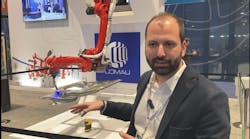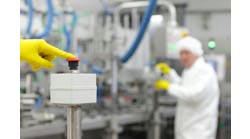Over the last few years, green has become an all-encompassing and often meaningless marketing buzzword. But in the real engineering-based world of machine builders, robot builders and their customers – greening the environment is inseparable from saving some green.
“Just focusing on being green doesn’t improve our market position,” observes Volker Klocke, Ing, a senior controls project engineer with GL&V Paper Group (www.glv.com) in Lenox, Mass. GLV makes paper manufacturing machinery, winders and slitting systems in particular. “It’s instead the combination of functionality, safety and energy efficiency that make our machines better in ways that matter to our customers,” adds Klocke.
Diane Trentini, the director of marketing and sales operations for systems integrator Optimation Technology (www.optimation.us) in Rush, N.Y., agrees. “Good machine design means meeting design requirements while being cost effective, energy efficient and environmentally sustainable. All these criteria must align in order to justify a green machine”.
Another machine builder cautions against green hype. “We don’t see anything applicable to our machines as green, and using such a term would be nothing more than a marketing ploy with little if any real meaning,” says Leon Drake, chief engineer at Dynatorch (www.dynatorch.com), a manufacturer of CNC plasma cutting machines in Paducah, Ky.
Cost and performance improvements tinged with green are in big demand and don’t go in and out of fashion. Specious green claims and marketing hype don’t provide an enduring advantage to OEMs or to their customers and should be avoided.
Green machines start with the good design practices that smart OEMs have been following for years. These machines are then further improved by borrowing ideas from the environmental movement such as sustainability. The final product is a green machine that is both sustainable and sellable to OEM customers.



